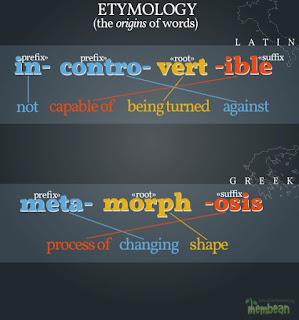Etymology
Biology derives from the Ancient Greek words of βίος; romanized bíos meaning "life" and -λογία; romanized logía (-logy) meaning "branch of study" or "to speak". [7][8] Those combined make the Greek word βιολογία; romanized biología meaning biology. Despite this, the term βιολογία as a whole didn't exist in Ancient Greek. The first to borrow it was the English and French (biologie). Since the advent of the scientific era, reanalyzable as a compound using the combining forms bio + logy.[clarification needed]
The Latin-language form of the term first appeared in 1736 when Swedish scientist Carl Linnaeus (Carl von Linné) used biologi in his Bibliotheca Botanica. It was used again in 1766 in a work entitled Philosophiae naturalis sive physicae: tomus III, continens geologian, biologian, phytologian generalis, by Michael Christoph Hanov, a disciple of Christian Wolff. The first German use, Biologie, was in a 1771 translation of Linnaeus' work. In 1797, Theodor Georg August Roose used the term in the preface of a book, Grundzüge der Lehre van der Lebenskraft. Karl Friedrich Burdach used the term in 1800 in a more restricted sense of the study of human beings from a morphological, physiological and psychological perspective (Propädeutik zum Studien der gesammten Heilkunst). The term came into its modern usage with the six-volume treatise Biologie, oder Philosophie der lebenden Natur (1802–22) by Gottfried Reinhold Treviranus, who announced:[9]
The objects of our research will be the different forms and manifestations of life, the conditions and laws under which these phenomena occur, and the causes through which they have been effected. The science that concerns itself with these objects we will indicate by the name biology [Biologie] or the doctrine of life [Lebenslehre].
What is entymology in Hindi?
जीवविज्ञान प्राचीन यूनानी शब्द से निकला है; रोमानीकृत बायोस अर्थ "जीवन" और -λο ;α; रोमानी लोगिया (-विज्ञान) का अर्थ है "अध्ययन की शाखा" या "बोलने के लिए"। [[] []] उन लोगों ने मिलकर ग्रीक शब्द λιολο ;α बनाया; रोमानीकृत बायोलोजी अर्थात जीवविज्ञान। इसके बावजूद, प्राचीन के रूप में οιολο ,α शब्द प्राचीन ग्रीक में मौजूद नहीं था। यह उधार लेने वाला पहला अंग्रेजी और फ्रेंच (बायोलॉजिस्ट) था। वैज्ञानिक युग के आगमन के बाद से, संयोजन यौगिक बायो + लॉजी का उपयोग करते हुए एक यौगिक के रूप में reanalyzable। [स्पष्टीकरण की आवश्यकता है
इस शब्द का लैटिन भाषा का रूप पहली बार 1736 में सामने आया था जब स्वीडिश वैज्ञानिक कार्ल लिनिअस (कार्ल वॉन लिने) ने अपनी बिब्लियोथेका बोटानिका में बायोलोजी का इस्तेमाल किया था। 1766 में एक बार फिर फिलोसोफी नेचुरलिस सिव फिजियो नामक काम में इसका इस्तेमाल किया गया: टामस III, क्रिश्चियन कोल के शिष्य, माइकल क्रिस्टोफ़ हानोव द्वारा भूगर्भशास्त्री, बायोलोजियन, फाइटोलोगियन जनरलिस। पहला जर्मन उपयोग, बायोलॉज, लिनिअस के काम के 1771 अनुवाद में था। 1797 में, थियोडोर जॉर्ज अगस्त रूज़ ने इस शब्द का इस्तेमाल ग्रुंडज़ुगे डेर लेह्रे वैन डेर लेबेन्सक्राफ्ट की प्रस्तावना में किया। कार्ल फ्रेडरिक बर्डच ने 1800 में इस शब्द का प्रयोग एक रूपात्मक, शारीरिक और मनोवैज्ञानिक दृष्टिकोण (Propädeutik zum Studien der gesammten Heilkunst) से मनुष्य के अध्ययन के अधिक प्रतिबंधित अर्थ में किया। यह शब्द गोटफ्राइड रेनहोल्ड ट्रेविरेनस द्वारा छह-मात्रा के ग्रंथ बायोलोजी, ओडर फिलॉस्फी डेर लेबेन्डेन नेचुर (1802–22) के साथ अपने आधुनिक उपयोग में आया, जिन्होंने घोषणा की: [9]
हमारे अनुसंधान की वस्तुएं जीवन के विभिन्न रूपों और अभिव्यक्तियों, स्थितियों और कानूनों के तहत होंगी, जिनके तहत ये घटनाएं होती हैं, और जिन कारणों से वे प्रभावित हुए हैं। विज्ञान जो इन वस्तुओं से खुद को चिंतित करता है, हम जीवविज्ञान [बायोलॉगी] या जीवन के सिद्धांत [लेबेन्स्लेयर] द्वारा इंगित करेंगे।






Comments
Post a Comment